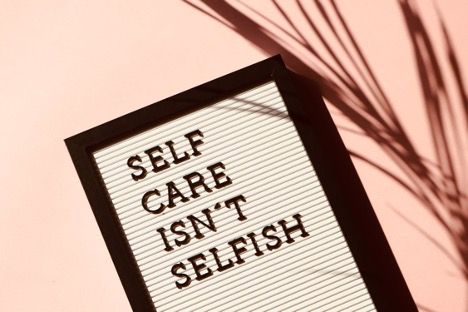5 Tips for Managing Mental Health in 2022
5 Tips for Managing Mental Health in 2022

Image credit: Pexels
As January comes to a close, you may look back over the month and see you experienced the after "holiday blues" – medically known as seasonal affective disorder. And you're not alone, as according to an article on Forbes seasonal affective disorder is experienced by over 6% of the population or 19 million Americans. To them, the new year finds them “sinking into depression as the season's change”. Some symptoms include sudden changes in weight, appetite, and behavior. Bouts of irritability and fatigue are common. You may even find that you no longer enjoy activities like you used to. Yet there's so much to celebrate this year. Let’s talk through some quick tips to help you step into February refreshed.
Accept how you feel
The first, and probably the most important, step you need to take is to recognize your feelings. By acknowledging that any feelings of sadness are normal and can be dealt with, you can take the initiative and get to the root of your distress. You can then work toward healing. For example, if you are feeling burnt out, consider taking time for self-care instead of signing up for another friend or family function. A walk in the park or by the beach can help re-center and refresh you. A small action like this can significantly prevent negative emotions, like anxiety, from surfacing.
Revamp your lifestyle

Image credit: Pexels
Exercise, sleep, and diet are the three pillars of good mental health, and the good news is you can start out small. Anything that helps you move (like walking) is good, as is eating processed foods less often and incorporating a variety of grains, nuts, produce, and protein into your meals.
Finally, did you know that sleep quality outranks everything else in improving mental health? A post on celebrity sleep schedules by Unfold Today shows that 76% of the most successful celebrities, like Jennifer Lopez and Tom Brady, sleep at least 7 hours a night. This is because 7 hours is the recommended time of sleep by the National Sleep Foundation for the betterment of your physical and mental wellbeing. If it's difficult to change your current routine or get the recommended hours of sleep a night, the simplest thing you can do is keep blue light-emitting gadgets away from the bedroom so they won't disturb your natural sleep cycle.
Prioritize connections
When you start feeling down, talk to someone about it. Whether done in person or online, this can relieve stress and, according to research from the University of North Carolina, can even extend your lifespan. Meanwhile, if your blues stem from isolation, find a way to spend more time with your loved ones. Lifeline Community Services can help! Check out our variety of services that support, youth, adults, and families on their journey towards self-reliance.
Consider therapy
If you feel these preliminary steps aren't helping, consider seeking professional help. Given the stigma, this may be a daunting prospect to some. However, this SymptomFind list of mental health advocates from the sporting world emphasizes how life-changing it can be. The most notable name on the list is arguably Simone Biles. The world's best gymnast admitted to initially resisting therapy due to the stigma. Once she embraced the practice, she found it to be a safe space that helped her process her emotions better. Lifeline’s blog post entitled Katie's Story attests, therapy can help you in a similar manner as well by improving your happiness, relieving your stress, and equipping you with the skills you need to navigate life more effectively. You can also view Lifeline’s Behavioral Health services on our website as well.
Be kind to yourself

Image credit: Pexels
Finally, don't be too hard on yourself. There are things that will be out of your control. Omicron may prevent you from seeing sorely missed relatives during Christmas. Trips and reservations might fall through. Though nothing can be done about these situations, what you can change is how you handle them emotionally. Be grateful for what you have and what may happen. In this season of kindness, the first person you need to be kind to is yourself — and the first thing you need to prioritize is your mental health.
Article contributed by Rosey Justine
Exclusively for Lifeline Community Services